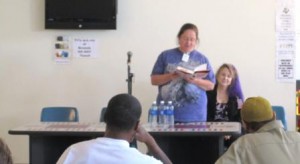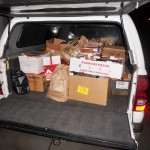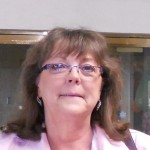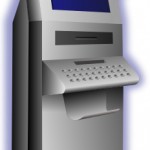 At first glance, this post may seem to have nothing to do with prison librarianship. The rural, conservative, and isolated location of most prisons is something people outside the profession may not always think about. Most jails, and a few of the smaller or minimum security prisons are located in or near bigger cities, but most of the bigger, higher security facilities are logically placed away from large communities.
At first glance, this post may seem to have nothing to do with prison librarianship. The rural, conservative, and isolated location of most prisons is something people outside the profession may not always think about. Most jails, and a few of the smaller or minimum security prisons are located in or near bigger cities, but most of the bigger, higher security facilities are logically placed away from large communities.
For anyone who imagines living close to public transit, giving up their car, walking to the grocery store, spending their evenings at a local music venue or hip little bar…know that these are just daydreams for most prison librarians! My current life is based in Connell, WA. The population is approximately 3190, and the primary industries are food processing, agricultural chemicals, and incarceration of convicted felons.
As I drove in to work this morning, I saw a coyote running through the grass along the outer perimeter of the property. This is summer, and the sun has already been up for three hours before I arrive at 8:00 am. It’s hot and it’s going to get hotter. It’s dusty and nothing breaks the wind up here on the hill. There is another coyote painted on a sign at the main entrance (I work at the Coyote Ridge Corrections Center), where large sign is also posted to inform visitors that this is a prison, and certain items are not allowed on grounds (weapons, etc.). If the surrounding landscape seems dull, wait until you go inside the prison. Sometimes I’m astounded by the idea of a vibrant intellectual center located inside a place that seems so cold and hostile from the outside. Fences and barbed wire surround the buildings, and once you go inside, the only green you see are small weeds that have sprouted up in the rock, which is raked into neat, flat circles on a regular basis by the inmates who live here. Everywhere you look, there is only gray. The walls, sidewalks, and lawns of rock are all gray, and there is only a gray reflection on tiny windows in the housing units. One of the inmates here tells me there was a fire drill one night, and he got to go outside. “It was so cool because I got to see the stars,” he said.
I think the institution is even more striking in darkness. From the highway, all you see are the stars above, and the yard lights on tall poles and a set of buildings set in a rough circular formation. It is like a miniature metropolis plopped down in the middle of eastern Washington’s agricultural landscape. For miles and miles, there is nothing but fields and tractors and windmills. And then you see this prison, and it kind of makes you think. About what, I’m not sure. But it definitely makes you think.
 On April 9th, 2013, at the invitation of Library Associate Gayle Shonkwiler, Patricia Briggs, author of the Mercy Thompson shapeshifter series, visited the Coyote Ridge Corrections Center. The presentation was very well received and liked by the 30 inmates in attendance. Patricia read from her newest best seller “Frost Burned” which was just released in March. After the reading she answered questions about everything from her books, how to write, how to get published and character development. Patricia thoroughly enjoyed her visit and donated the seven book series to the CRCC Branch Library.
On April 9th, 2013, at the invitation of Library Associate Gayle Shonkwiler, Patricia Briggs, author of the Mercy Thompson shapeshifter series, visited the Coyote Ridge Corrections Center. The presentation was very well received and liked by the 30 inmates in attendance. Patricia read from her newest best seller “Frost Burned” which was just released in March. After the reading she answered questions about everything from her books, how to write, how to get published and character development. Patricia thoroughly enjoyed her visit and donated the seven book series to the CRCC Branch Library.












